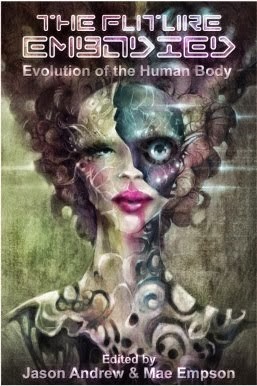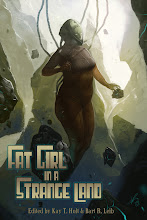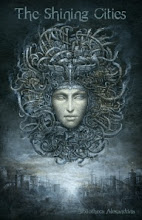I write big.
When I come up with a story, my mind usually fills in the blanks until I have a novel’s worth of content. Setting, characters, plot, and sub-plots. This means the hard part is just forcing myself to write the first draft. It may not be pretty when it’s done, but everything’s there. And so far, I haven’t had to worry about padding my story to meet target words counts. If anything, I work on tightening things up and deciding what to cut out (research, in the case of my historical romances; worldbuilding in my speculative works).
And with my novel-length works, I always know where I’m going to end up. It may change a bit as the first draft progresses, but that’s ok and usually makes the ending stronger.
I also have some shorter projects in the works. Short stories and the like. But I keep running into problems when I write short: I don’t know how to end them.
Actually, it’s probably more accurate to say I don’t know how to end them in a satisfying way. They just kinda stop.
I suspect my difficulties with The Ends in short stories has to do with (1) what I choose to focus my story on, (2) how I structure my stories, and (3) my level of exposure to short stories that are currently being published.
Story Focus – Some of my short stories end up being sketches of a potentially larger narrative that feel rushed and unsatisfying because they deserve a larger treatment. Then can I go in the opposite direction and write a story that captures one moment in time, a mood even, and I don’t know how to finish it off because it’s more atmospheric than a complete story
Structure – My choice of story focus obviously affects structure. For my novels-in-short-story-clothing, I struggle to reduce the traditional three-act structure into a shorter format. For my moments-in-time stories, I’m not sure if there's even a way structure can inform how to tie things off. I know that you should focus on one thing in a short story and each word should contribute to the overall effect, but I just can’t seem to do it.
Exposure – I read. A lot. But mostly I read novels. Not short stories. I read them when I was in school of course, but they were the classics, not the short fiction of today. I have a bunch of collections in my TBR pile, and requested a couple of literary magazine subscriptions for Christmas, so I hope to widen my exposure and in turn strengthen my craft.
But right now, I’m wracking my brain as to how I’m going to end two short pieces I’ve been working on off and on for the past few months. So I finally asked the google gods to help me out with how to end a short story, and here’s what I found:
Short Stories: 10 Tips for Creative Writers - Describes different types of short story endings and provides examples.
Ten Short Story Endings to Avoid - Just what it sounds like. Luckily I haven’t employed any of these!
Writing Short Stories with a Twist Ending - Describes different types of twist endings and points to examples.
Short Story Project: Beware the Twilight Zone Ending - Explains why you should avoid twist endings in your stories.
Short Story Endings Podcast from the Writing Show - An hour-long discussion with short story writers Randall Brown and Melissa Palladino.
I know I can always throw down the gauntlet and decide to only write book-length stories and never look back. But that means I’ve given up all hope of writing short. And in today’s industry, versatility is a writer’s best friend.
How do you go from writing big to small? Small to big?
Subscribe to:
Post Comments (Atom)









3 comments:
I struggle with this, too, as I write picture books and am working my way through a middle grade novel. What I like about picture books is this: closure happens with in 500 or so words. But it's gosh darn hard to get those 500 words perfect.
No words of wisdom other than persevere. Thanks for the links, I'll go check them out. Enjoy your weekend.
Those look like GREAT short stories links! Thanks!
Angela @ Teh Bookshelf Muse
Ooh, I'm on the same page as you. I had so much trouble writing essays and short stories until I forced myself to browse through a million of them. It's awesome that you're writing a novel and short story at the same time!!
Post a Comment